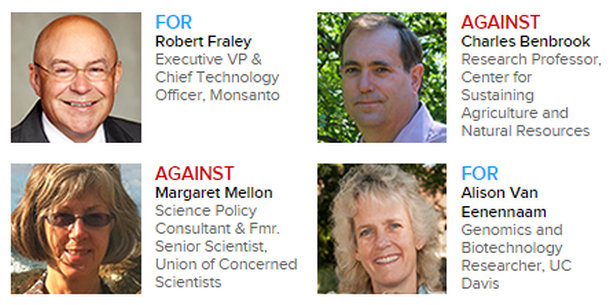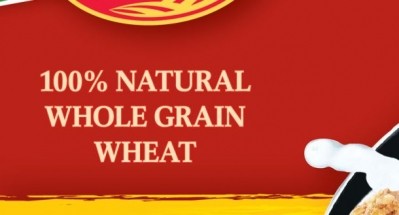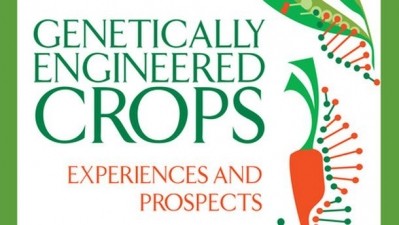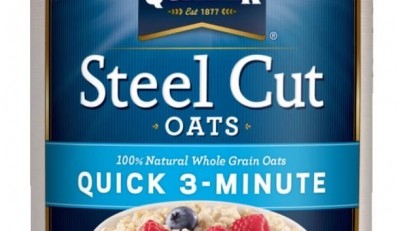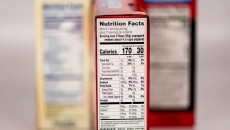Monsanto exec: GMOs are not the Holy Grail. What they are is an important tool if used properly
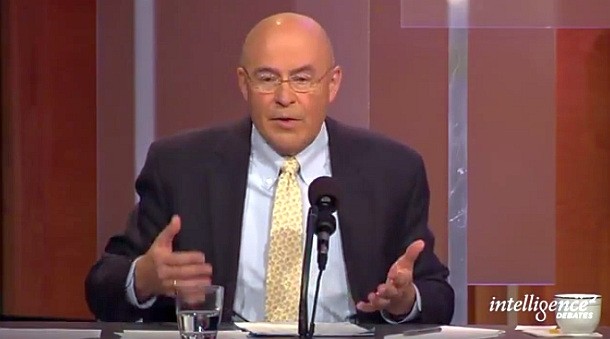
Dr Fraley was speaking at a live debate hosted by Intelligence Squared in which he and UC Davis genomics & biotech researcher Dr Alison Van Eenennaam argued for GM food crops and Washington State University research professor Dr Charles Benbrook and Union of Concerned Scientists science policy consultant Margaret Mellon argued against.
Before the debate, 38% of the audience was undecided on GM crops, 32% was in favor, and 30% was against. After the debate, 60% voted in favor, 31% against and 9% remained undecided.
Have GM crops reduced or increased the use of pesticides?
Much of debate covered familiar ground over safety (those in favor pointed to 100s of studies supporting safety, those against felt the precautionary principal should apply) but the most lively sections explored one aspect of the debate that constantly confuses people: have GM crops reduced or increased the use of chemical pesticides?
Much of the confusion relates to the fact that the word pesticides covers both herbicides (which kill weeds) and insecticides (which kill insects), said speakers.
It is a well-documented fact that insecticide use has gone down significantly since the introduction of Bt crops engineered to produce their own insecticide from the soil bacterium Bacillus thuringiensis (Bt), said Dr Fraley, noting that it is “the very same bt protein that has been used by organic farmers for years”. Meanwhile, yields have gone up because the pests no longer destroy as much of the crop.
Mellon: Glyphosate is no longer as useful as it once was
However, herbicide use has gone up, claimed Margaret Mellon. And the issue of weeds developing resistance to glyphosate (RoundUp) - a herbicide used with some GM crops - is a huge problem, claimed Mellon, who said farmers were now using more of it, and supplementing it with other, more harmful herbicides because it is no longer as effective.
“Glyphosate is no longer as useful as it once was, and it's getting less useful every day because resistant weeds are coming, and those resistant weeds are leading to greater and greater use of herbicides.”
Dr Benbrook added: “In the case of the herbicide tolerant crops, the great concern is this huge increase in herbicide use that's started about a decade ago and has gotten worse and worse and worse each year. So, if you've reduced insecticide use by 100 million pounds, that's a good thing, but herbicide use has gone up by 600 million plus pounds... So how do you come up with pesticide use going down [thanks to GM crops]? It's just not true.”
Dr Fraley: Should drug companies stop developing new antibiotics just because we’ve built up resistance to the old ones?
But this was not a reason to throw the baby out with the bathwater, said Dr Fraley, who noted that farmers are constantly having to adapt the tools they deploy to keep pests, weeds and other threats to plants at bay, whether their crops are genetically engineered or not.
“Concern over resistance development is a concern that's been a concern from the beginning of time… Evolution is alive and continues," he said. "And, frankly… as we get into issues of climate change and changes in microenvironments, we'll probably see more evolution and more resistance.
“[But] here's a simple question: You've all heard of antibiotic resistance. It's a problem, right? You're aware of it. So what should drug companies do? Should they not develop new antibiotics just because there's become a resistance to an antibiotic? Absolutely not.”
The solution, in GM as with any other form of agriculture, is to improve the tools, he said.
“I'm actually proud of the fact that we are developing our third and fourth generation technologies and staying ahead of the curve.”

GMOs are not the Holy Grail
Meanwhile, it was also misleading to say that herbicide-tolerant GM crops no longer deliver benefits, and that RoundUp no longer ‘works’, he said.
“These crops have enabled farmers to use safer and more environmentally friendly chemicals and replace the products that were previously used, but they've also had a profound benefit to the environment, of enabling farmers to not plow their soils.”
And even factoring in the fact that some weeds have become resistant to RoundUp, he said: “It controls hundreds of weeds. In this country, 12 of them have become resistant. But it still controls hundreds of weeds. It needs to be used effectively. And, Chuck [Charles Benbrook], you were one of the first ones to point out that we should actually use combinations of herbicides. And that's what growers are doing today, and that's one of the benefits of being smarter and stewarding these products better.”
He added:“GMOs are not the Holy Grail. What they are is an important tool if used properly.”

Alison Van Eenennaam: Plant diseases destroy 15% of our world's agricultural harvest
Dr Van Eenennaam, meanwhile, said the whole debate about what pesticides we spray on high-profile GM crops like corn and soy diverted attention from scores of other truly exciting applications of the technology, particularly in relation to tackling plant viruses.
“Other introductions include drought resistant corn, virus resistant squash… nitrogen efficient and flood-tolerant rice… consumer traits like a non-browning apple, a low-acrylamide potato, and crops produced oils with improved for nutrition. None of these applications require the use of any chemical pesticides.
“Researchers are working to develop GM oranges that are resistant to citrus greening disease, something that is devastating the Florida orange industry. Plant diseases destroy some 15% of our world's agricultural harvest, a number that is likely to grow as our climate changes.”
Meanwhile, a genetically engineered papaya has “literally saved the Hawaiian papaya industry” from a devastating plant virus, she added.
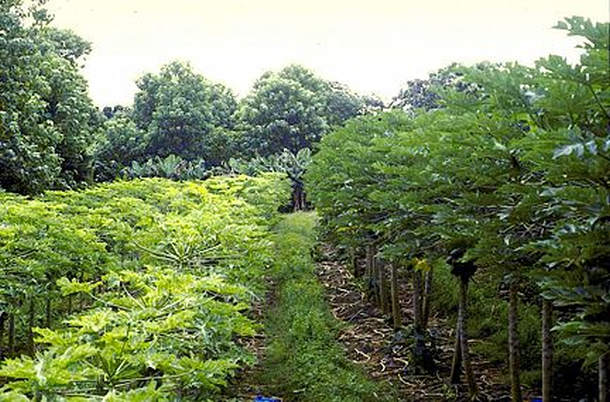
“There are many publicly funded groups around the world, working to develop GM-disease resistant varieties of crops, including apples, bananas, cassava… eggplant, grapes, potatoes, rice, sweet potatoes, and wheat.
“Some of these staple crops are an essential source of nutrient in the diets of the poor… All of these applications focus on controlling disease with genetics rather than chemicals, an objective that I would argue is compatible with agroecology, sustainability, and feeding more people better with less environmental impact.”

Margaret Mellon: Compared to the vision, the early vision, it's a big disappointment
However, Dr Benbrook said much of what had been promised had not been delivered: “What's the reality of genetic engineering agriculture today as opposed to the promise or the aspiration?”
Mellon added: “There’s just no doubt that compared to the vision, the early vision, it's a big disappointment.”
Watch the whole debate HERE.
